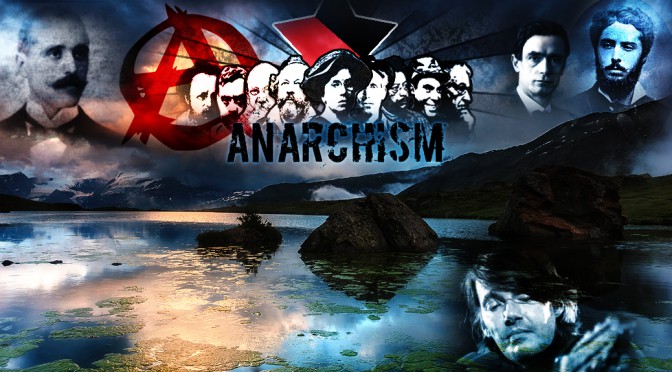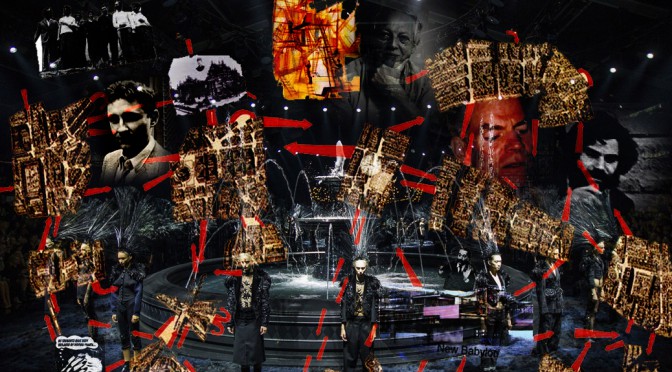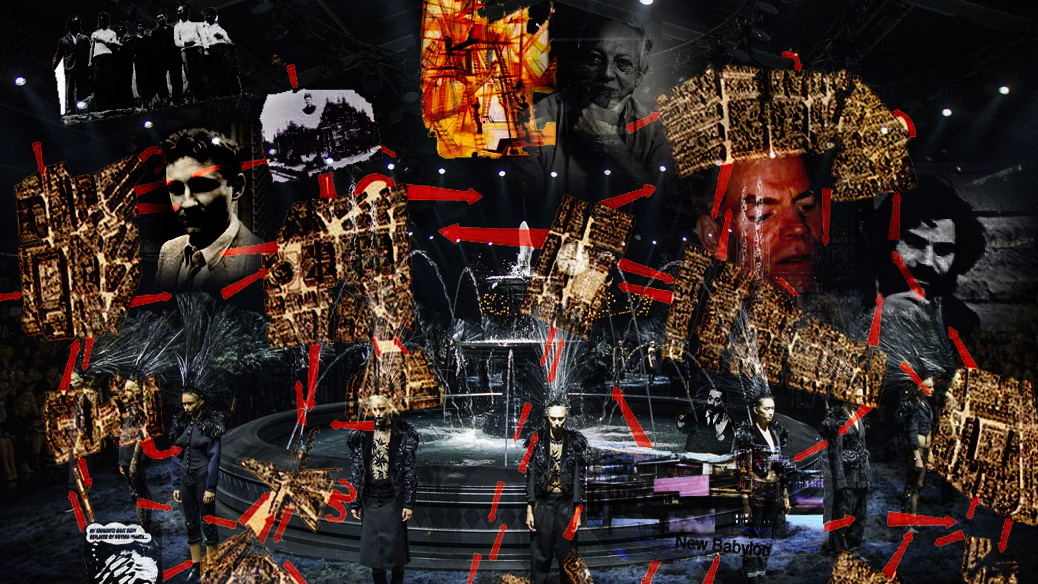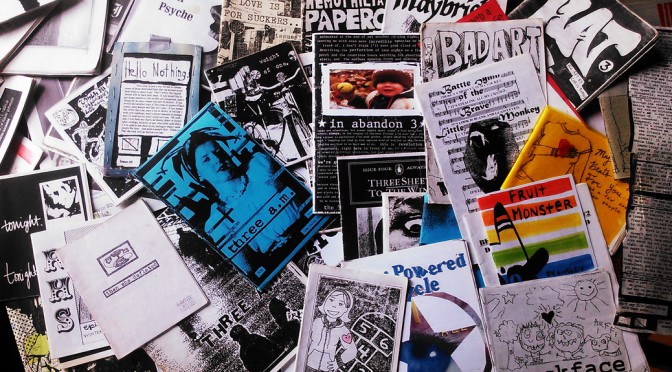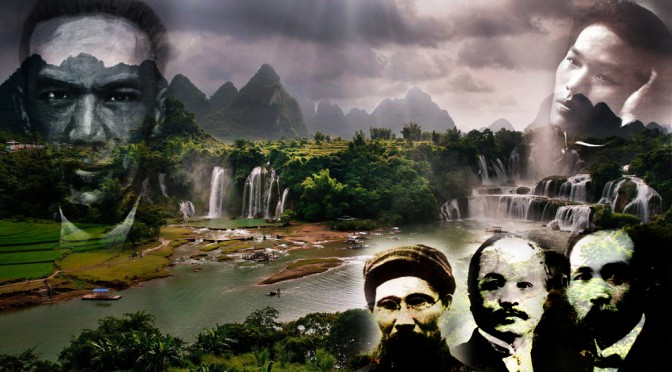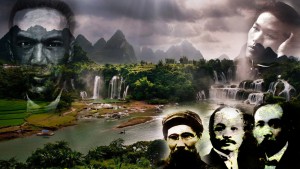Tag Archives: featured
THE SITUATIONISTS
BOOKS
BOOKLETS, PAMPHLETS, ZINES…
ABOUT VIETNAM
On Third World Struggles
What does “national liberation” mean for workers and peasants? The imperialist powers speak of “the right of peoples to self-determination,” and this phrase is adopted by the parties striving for power in colonial and semicolonial countries. We propose to banish the word “people” from our vocabulary: it implies an equality of right between the exploiting classes and the exploited masses. Who “self-determines” whom in the new national “peasant” states? In countries within the Western sphere of influence, national independence hands power over to the local bourgeoisie, which exploits the proletariat, and to the landowning class, which exploits the peasantry; in countries within the so-called “Communist” bloc, the state-capitalist bureaucracy exploits proletariat and peasantry alike. For workers and peasants, national liberation means nothing more than a change of masters.
Needless to say, in countries like India, where imperialism has handed power over to the local bourgeoisie, peasants die of hunger or live on the verge of starvation, at the mercy of greedy landowners. In countries where immense peasant uprisings have brought “Communist” parties to power, bureaucratic-military states have emerged that have introduced agrarian reform for their own ends: they abolish land ownership, eliminate the landowning classes, and redistribute land to the peasants in order to secure their support during the initial phase of their rule; but once state capitalism is established, the superexploitation of the peasants forms the basis of primitive accumulation for industrialization.
We live in an era of permanent war. The major powers confront each other, either directly or through the states under their dominion, and, as in the past, they each lay the responsibility on the other side.
Whatever the country, the victims are always the workers and peasants. “A people that oppresses another people is itself oppressed.” We have no country to defend, even if that country claims to be “communist.” For all the exploited, the struggle for self-emancipation means the duty to fight against their own exploiters, and war is nothing other than the most extreme form of that exploitation. The peace or war promoted by our masters, be they bourgeois, landowners, generals or “Communist” bureaucrats, is no concern of ours. We have no interest in the defense of the “Free World” or the defense of a “workers’ and peasants’ government.” No matter where we live, we must struggle directly against those who send us to slaughter by refusing to manufacture or to bear arms; and that struggle is an integral part of our struggle for self-emancipation, across all borders.
NGO VAN
1968
“History is written by the victors.” With the increasing spectacularization of modern society, this truism has become truer than ever. The most radical revolts are not only physically crushed, they are falsified, trivialized, and buried under a constant barrage of superficial and ephemeral bits of “information,” to the point that most people do not even know they happened.
Ngo Van’s In the Crossfire is among the most illuminating revelations of this repressed and hidden history, worthy of a place alongside such works as Voline’s The Unknown Revolution and Harold Isaacs’s The Tragedy of the Chinese Revolution. It is also a very moving human document: dramatic political events are interwoven with intimate personal concerns, just as they always are in reality. In this respect Van’s book is perhaps more akin to Orwell’s Homage to Catalonia or Victor Serge’s Memoirs of a Revolutionary.
The two-stage Vietnam war against French and then American occupation (1945-1975) is still fairly well known; but almost no one knows anything about the long and complex struggles that preceded it, including the fact that many of those struggles were inspired by an indigenous Trotskyist movement that was often more popular and more influential than the rival Stalinist movement under Ho Chi Minh. While Ho’s Communist Party slavishly followed the constantly shifting policy lines ordered by his masters in the Kremlin (which often called for alliances with the native landowners and bourgeoisie in the name of “national unity,” or at times even with the French colonial regime when France happened to be allied with Russia), the Vietnamese Trotskyists expressed more consistently radical perspectives. The situation was somewhat analogous to what was going on in Spain during the same period. In both cases a radical popular movement was fighting against foreign and reactionary forces while being stabbed in the back by the Stalinists. One significant difference was that in Spain the popular movement was predominantly anarchist, whereas anarchism was virtually unknown in Vietnam.* Many Vietnamese rebels thus understandably saw the Trotskyist movement as the only alternative, the only movement fighting simultaneously against colonialism, capitalism and Stalinism.
In any case, spontaneous popular revolts often bypassed whatever ideologies were officially in play, implicitly calling in question the whole social order even when their explicit demands were much more minimal. What stands out is the readiness of ordinary people to create their own forms of action — workers forming underground unions and carrying out illegal strikes, peasants seizing land and forming “soviets,” prisoners organizing resistance networks, women breaking out of their traditional roles, students and teachers putting their learning to subversive use, neighborhoods organizing themselves into “people’s committees,” streetcar workers creating an independent militia, and most astonishing of all, 30,000 coal miners forming a workers-council “Commune” that manages to hold out for three months before being destroyed by the Stalinists. These are not the proverbial “masses” meekly waiting for some leader or “vanguard party” to tell them what to do. They are participants in one of the most broad-based and persevering revolutionary movements of the twentieth century.
Ngo Van took part in that movement as a young man, and in his old age, half a century later, he became the preeminent chronicler of its remarkable victories and tragic defeats.
In Part I of this book Van recounts his experiences growing up in a peasant village; working as a teenager in Saigon; discovering the true nature of the colonial system; becoming aware of movements that were fighting it; cautiously seeking out other dissidents; attending clandestine meetings; establishing underground networks; disseminating radical publications; organizing strikes and protests; taking part in insurrections and partisan warfare; being jailed and tortured by the French; and facing the murderous betrayals by the Stalinists, who systematically liquidated the Trotskyists and all the other oppositional movements in the aftermath of World War II.
Constantly harassed by the French colonial police in Saigon and risking assassination by the Stalinists if he ventured into the countryside, Van emigrated to France in 1948. As described in Part II, he became a factory worker, struggled with tuberculosis, took up painting, and discovered new political perspectives. His encounters with anarchists, councilists and libertarian Marxists reaffirmed the most radical aspects of his previous experiences while verifying his increasing suspicions that there were significant problems with Trotskyism as well as Stalinism. From that point on, Van carried out his activities as an independent radical more or less in the council-communist tradition, whether in taking part in rank-and-file worker struggles or in writing articles on East Asian politics and history.
After his retirement in 1978, Van devoted the next seventeen years to researching and writing his monumental history, Vietnam 1920-1945: révolution et contre-révolution sous la domination coloniale. Following the publication of that book in 1995, he wrote a parallel autobiographical account of the same period: Au pays de la Cloche fêlée (2000). When that was done, he returned to his more “objective” history of modern Vietnam. (I might mention here that in addition to his works on Vietnamese history, he also authored two studies of radical currents in ancient China and put together a collection of Vietnamese folktales. See the Bibliography for information on these and other publications.)
After completing the second volume of his Vietnam history, Le Joueur de flûte et l’Oncle Hô: Vietnam 1945-2005, Van returned to his autobiography, envisioning a continuation that would cover his years in France. Unfortunately he did not live long enough to complete this latter project. He died January 2, 2005, at the age of 92. Later the same year his publishers, Insomniaque, issued a memorial volume, Au pays d’Héloïse, comprising the few chapters he had completed (mostly about his life during the 1950s) along with several articles, numerous photographs and a selection of his lovely paintings, many of which are reproduced in the present volume.
* * *
Anticolonial movements have long been a source of political blackmail. People who become aware of the horrors of colonialism usually know little else about the countries involved and have often been ready to applaud any purportedly “progressive” leadership, supporting practices they would never dream of defending if they took place in a modern Western country. Radical social critique has been discouraged by the argument that criticizing even the most brutal Third World regimes is “playing into the hands of the imperialist powers.” Moreover, in many cases apologists have been able to argue that despite regrettable defects, those regimes are the only possibility, there are no apparent alternatives.
But this is not always the case. Readers of The Tragedy of the Chinese Revolution are aware that China did not have to go Stalinist (i.e. Maoist); there were other currents and other strategies that might have led to different results. The same is true of many other countries, including Vietnam. Ho Chi Minh’s Communist Party was not the only serious oppositional movement; it ultimately made itself so only by ruthlessly destroying all its rivals. Ngo Van’s books bear witness that there were many other possibilities.
There is nothing eccentric or exaggerated about those books. They are scrupulously accurate and thoroughly documented, and you can find verifications of most of the material in many other reliable sources. But to do so you would have to search long and deeply, wading through the immense mass of lies and distortions that have surrounded this topic. Van has brought it all together into a coherent and comprehensive account in his two-volume historical chronicle (as yet untranslated), then narrated the same events in a briefer and more personal manner in the autobiography that we are presenting here.
* * *
I met Ngo Van in Paris in 2001, along with his friend Hélène Fleury, and during the next few weeks saw them several more times. Although I could hardly get to know Van all that well in such a short period of time, we almost immediately became very dear friends.
Those who had the pleasure of knowing him will agree that despite the horrors he had endured and his lack of illusions about the violent nature of the present social order, Van was the sweetest and most gentle person one can imagine. His rebelliousness arose not only out of a justified rage at poverty and meanness and oppression, but out of his profound love of life. He was an all-round and wide-ranging person: a bon vivant at home in the lively give-and-take of Parisian bars and cafés, but also capable of quietly appreciating nature and solitude; a factory worker who was at the same time an artist and a connoisseur of classic literature; a radical agitator who was also a radical historian; a resolutely antireligious person who was nevertheless graced with an almost Buddhist stoicism and equanimity and who ultimately became a scholar of East Asian religious movements; a modest, unassuming man of the people who yet possessed a great nobility of character. It was a pleasure to know him, and it’s been a pleasure to work with Hélène and the other translators in presenting his work to English-speaking readers.
KEN KNABB
August 2010
___________________
* Some Web sources give the misleading impression that there was a significant anarchist influence in early Vietnamese struggles. Closer examination usually reveals that the supposed connection is extremely flimsy. The pioneering anticolonial leader Phan Boi Chau, for example, is sometimes referred to as “a proponent of anarchism” merely because “his thinking reflected certain distinctly anarchist themes, notably anti-imperialism and direct action,” and because he was on good terms with a few anarchists he met in Japan and China — though he was on equally good terms with monarchists, nationalists, socialists and militarists, and the organizations he founded advocated nothing more radical than a constitutional monarchy or a democratic republic. His overriding goal was to drive out the French; political groups and ideologies interested him only insofar as they might contribute to that goal. Until late in his life he scarcely manifested any interest even in socialism, let alone anarchism. (For more on Phan Boi Chau, see Note 155.)
Nguyen An Ninh is a different matter. His eclectic and romantic perspective did indeed reflect some anarchist influence (picked up from his years in Paris). This anarchism was blended with a variety of other European philosophical and cultural currents from Rousseau to Nietzsche, and since Ninh was a very popular and charismatic figure, those themes undoubtedly had some influence during the 1920s, particularly among the more educated urban youth. Hue-Tam Ho Tai’s Radicalism and the Origins of the Vietnamese Revolution gives a good account of the cultural ferment of that period, which served as a prelude to the more directly social and political struggles of the 1930s.
The only explicit Vietnamese anarchist mentioned in the present book is Trinh Hung Ngau. (Other sources describe him as a “nationalist with anarchist leanings.”) According to Ngo Van, he participated in the Jeune Annam movement (1926) and in the newspaper L’Annam (1926-1928) and was one of the founders of La Lutte (1933); but he withdrew from the latter after the third issue “because he was unable to express his anarchist ideal within it” (Vietnam 1920-1945, p. 212). He later took part in the Indochinese Congress movement (1936-1937).

